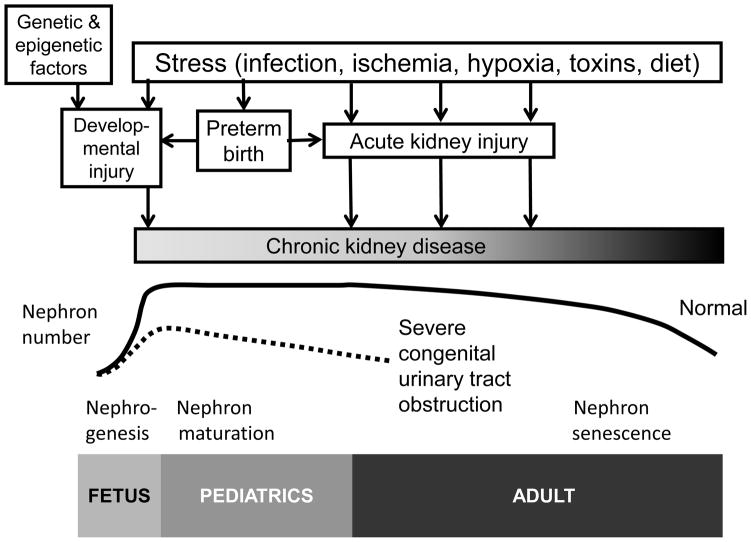Figure 4.
Evolution of congenital obstructive nephropathy over the life-cycle. Nephrogenesis is complete by 36 weeks gestational age, and nephron number is maintained through young adulthood, decreasing with normal aging. Genetic and epigenetic factors determine nephron number at birth. Maldevelopment of the urinary tract causing obstruction to urine flow induces “developmental” injury in fetal life, which is often combined with abnormal nephrogenesis (prematurity further impairs nephrogenesis). This developmental injury is compounded by “obstructive” injury, which results from hemodynamic and cellular adaptive responses leading to the pathologic changes shown in Fig. 1. Perinatal insults can add acute kidney injury (AKI) through infection, ischemia, hypoxia, toxins, or impaired nutrition, which can also accumulate with additional episodes of AKI throughout life. Optimal outcomes for children with obstructive nephropathy depend on smooth transition of care from obstetrician/perinatologist to pediatric urologist/nephrologist, then on to adult care.

